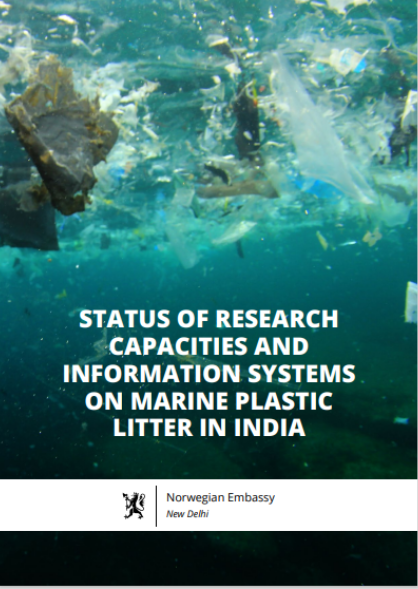Plastic waste is a growing concern globally and has emerged as a serious environmental issue affecting marine ecosystems. Plastic waste contributes to marine plastic litter which is degrading the marine health and its environment. The sustainability of the oceans is crucial and this has been recognized through Sustainable Development Goal 14 i.e. Life Below Water. Further SGD 14.1 aims to prevent and significantly reduce marine pollution of all kinds by 2025, in particular from land-based activities, including marine debris and nutrient pollution. This is in line with the objectives of the India-Norway Marine Pollution Initiative which focusses on SDG 14.1. Plastic waste emanating from land based sources is a major contributor to marine plastic pollution and single-use plastics form a major component of the littered plastic waste. In India, it has been estimated that SUPs constitute around 33% to 42% of annual plastic consumption. Reducing the dependency on SUPs and its consumption is a concern to effectively manage plastic waste in the country.
In line with Hon’ble Prime Ministers clarion call on the elimination of SUPs by 2022 and in view of reducing marine plastic pollution, UNEP has developed a policy brief focusing on the current state of knowledge and institutional capacity on marine plastic litter and the strategies to reduce marine litter by developing a comprehensive approach to reduce the demand and usage of single-use plastics. This policy brief draws attention on key aspects, namely
(i) State of research and knowledge on marine litter
(ii) Institutional capacity of marine plastic litter
(iii) Marine plastic litter and Single-use plastic management in India
(iv) Status of SUP bans
(v) Policy recommendations and strategies to limit SUPs in marine Litter.


